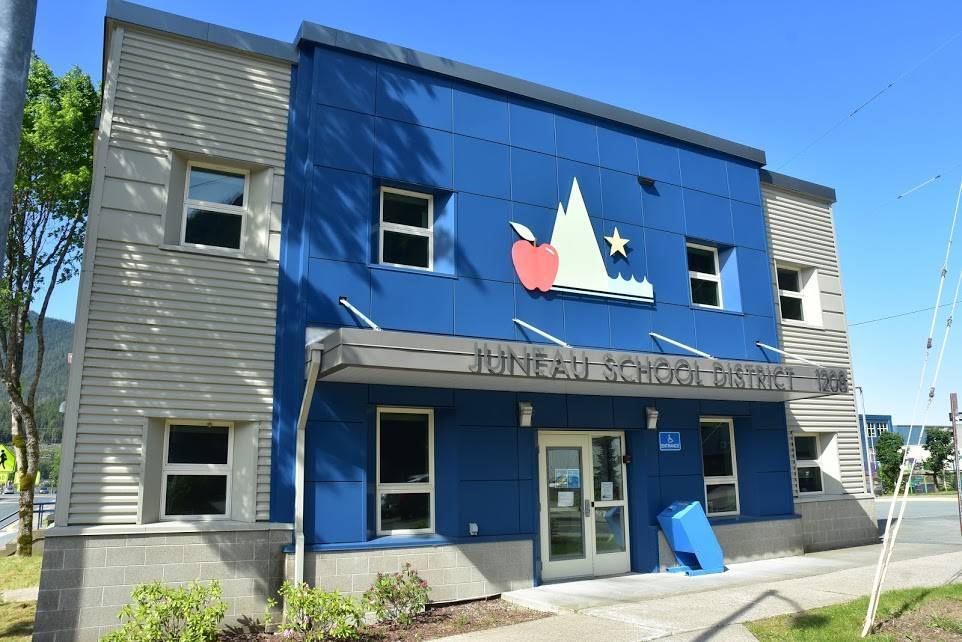If district administrators considered only COVID-19 statistics and federal Centers for Disease Control guidelines, Juneau’s schools would be open tomorrow. But if fear was a factor in their decision to start with distance learning, as Win Gruening suggested two weeks ago, then we ought to examine its root causes.
[Opinion: Are school closures based on science or fear?]
Even under normal circumstance, uncertainty creates anxiety. In this situation, it’s compounded first by a society with an aversion to risks of all kinds. A second time by its association with a serious threat. Add the erosion of public trust for elected leaders and the institutions of government. And mix all those ingredients with how the pandemic has been politicized from the very beginning.
That’s not a recipe for the making of intelligent public policy.
Science as an institution itself has been caught in a relentless political crossfire for two decades.
Those who trust its conclusions on climate change believe there’s overwhelming evidence that human activity is the predominant driver of global warming. The most strident among them call anyone who disagrees a denialist.
The other side argues warming is a function of the Earth’s natural cycles. That the carbon produced from burning fossil fuels is either negligible or unsupported by the evidence. President Donald Trump is among many who claim it’s a liberal hoax aimed at destroying the capitalist economy and America’s cherished freedoms.
I trust the science. But I also understand why a lot of people are either skeptical or refuse to engage in the debate. It easy to cast doubt on the ability of scientists to accurately measure global temperatures changes caused by carbon emissions and build predictive models of rising oceans based on that evidence. It doesn’t immediately impact their daily lives. And they’re completely turned off by the partisan rancor.
The science of COVID-19 is no less complicated. But it’s affected the lives of every American every day ever since governors across the country declared public health emergencies and closed schools and all non-essential commercial businesses.
That’s why there were huge audiences for the televised White House daily coronavirus briefings in March and April. People who don’t routinely follow policy debates in Washington, D.C., probably expected them to be led by medical experts and the president’s public health advisers. Instead, they were subjected to a lot of Trump’s know-nothing, stream of consciousness rambling. He often undermined or contradicted his administration’s health experts. And there were more than a few scenes that were accurately described as campaign infomercials.
Very little of what most Americans saw in those briefings inspired trust in their government. And the administration’s inconsistency elsewhere didn’t help.
In early April, the CDC revised its recommendation on wearing face masks. Three weeks later, Vice President Mike Pence violated Mayo Clinic policy by not wearing one while visiting their facility in Minnesota. And Trump’s refusal to wear one for three months contributed to a contentious debate about whether mask mandates were an infringement on individual rights or necessary to protect public health.
If there was any doubt that reopening schools wouldn’t become equally politicized, Trump ended that on July 6 by tweeting “SCHOOLS MUST OPEN IN THE FALL!!!” And Republicans who normally disparage science and abhor education policy being set by the federal government, suddenly think the public must trust the CDC.
A month ago, Washington Post columnist Megan McArdle predicted students in most school districts wouldn’t return to classrooms in the fall. She described parents who follow the lead of other parents so that if something bad “happens to their child, they will still feel unimaginably awful. But they won’t have the added pain of feeling it happened because they were irresponsible.”
Those “other parents” have no medical or scientific expertise. But for the apolitical parent, trusting them is a better bet than the dueling politicians who aren’t any smarter.
Unfortunately, that approach inadvertently reverts to politics. “In deference to Trump” McArdle aptly concluded, “those in the reddest states may resist the pressure toward safety at all costs.” But it will be the opposite in blue states, big cities and left-leaning communities like Juneau. “The more Trump insists, the more parents will resist.”
McArdle’s final criticism says it all. If we really want intelligently crafted public policy, “that’s a conversation we probably should have had several decades back.”
• Rich Moniak is a Juneau resident and retired civil engineer with more than 25 years of experience working in the public sector. Columns, My Turns and Letters to the Editor represent the view of the author, not the view of the Juneau Empire. Have something to say? Here’s how to submit a letter to the editor or My Turn.

